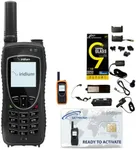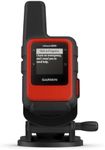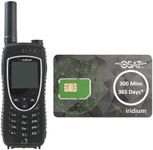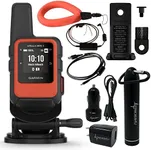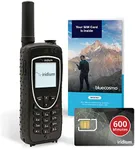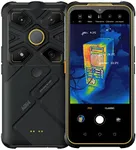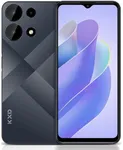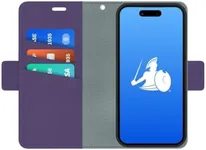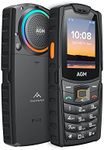Buying Guide for the Best Marine Satellite Phone
Choosing the right marine satellite phone is crucial for ensuring reliable communication while at sea. These devices are designed to provide connectivity in remote areas where traditional cell service is unavailable. When selecting a marine satellite phone, it's important to consider several key specifications to ensure it meets your needs for safety, functionality, and convenience.CoverageCoverage refers to the geographical area where the satellite phone can connect to a network. This is important because you need to ensure that the phone will work in the regions where you plan to sail. Satellite phones typically offer global coverage, but some may have better connectivity in certain areas. If you frequently sail in specific regions, check the coverage maps of different satellite networks to ensure reliable service.
Battery LifeBattery life indicates how long the phone can operate before needing a recharge. This is crucial for long trips where access to power sources may be limited. Battery life can range from a few hours to several days. If you plan to be at sea for extended periods, look for a phone with a longer battery life or consider carrying extra batteries or a solar charger.
DurabilityDurability refers to the phone's ability to withstand harsh marine environments, including exposure to water, salt, and extreme temperatures. A durable satellite phone is essential for ensuring it remains functional in challenging conditions. Look for phones with high IP ratings (e.g., IP67 or IP68) which indicate resistance to water and dust. If you expect rough conditions, prioritize phones with rugged designs and protective features.
Ease of UseEase of use encompasses the phone's interface and how intuitive it is to operate. This is important because you need to be able to use the phone quickly and efficiently, especially in emergencies. Phones with simple menus, clear displays, and easy-to-navigate buttons are preferable. If you're not tech-savvy, opt for a model known for its user-friendly design.
Voice and Data ServicesVoice and data services refer to the phone's ability to make calls and transmit data, such as emails or GPS coordinates. This is important for staying connected and sharing information while at sea. Some phones offer only voice services, while others provide both voice and data. If you need to send data or access the internet, choose a phone with robust data capabilities. Consider the speed and reliability of the data service as well.
Emergency FeaturesEmergency features include functionalities like SOS buttons, GPS tracking, and distress signal capabilities. These are critical for safety, allowing you to alert rescue services in case of an emergency. Phones with built-in emergency features can provide peace of mind and enhance your safety at sea. If safety is a top priority, look for models with comprehensive emergency functionalities.
Size and WeightSize and weight refer to the physical dimensions and heft of the phone. This is important for portability and ease of handling. Smaller, lighter phones are easier to carry and store, but they may have smaller batteries or fewer features. If you need a compact device, prioritize size and weight, but ensure it still meets your other requirements.
